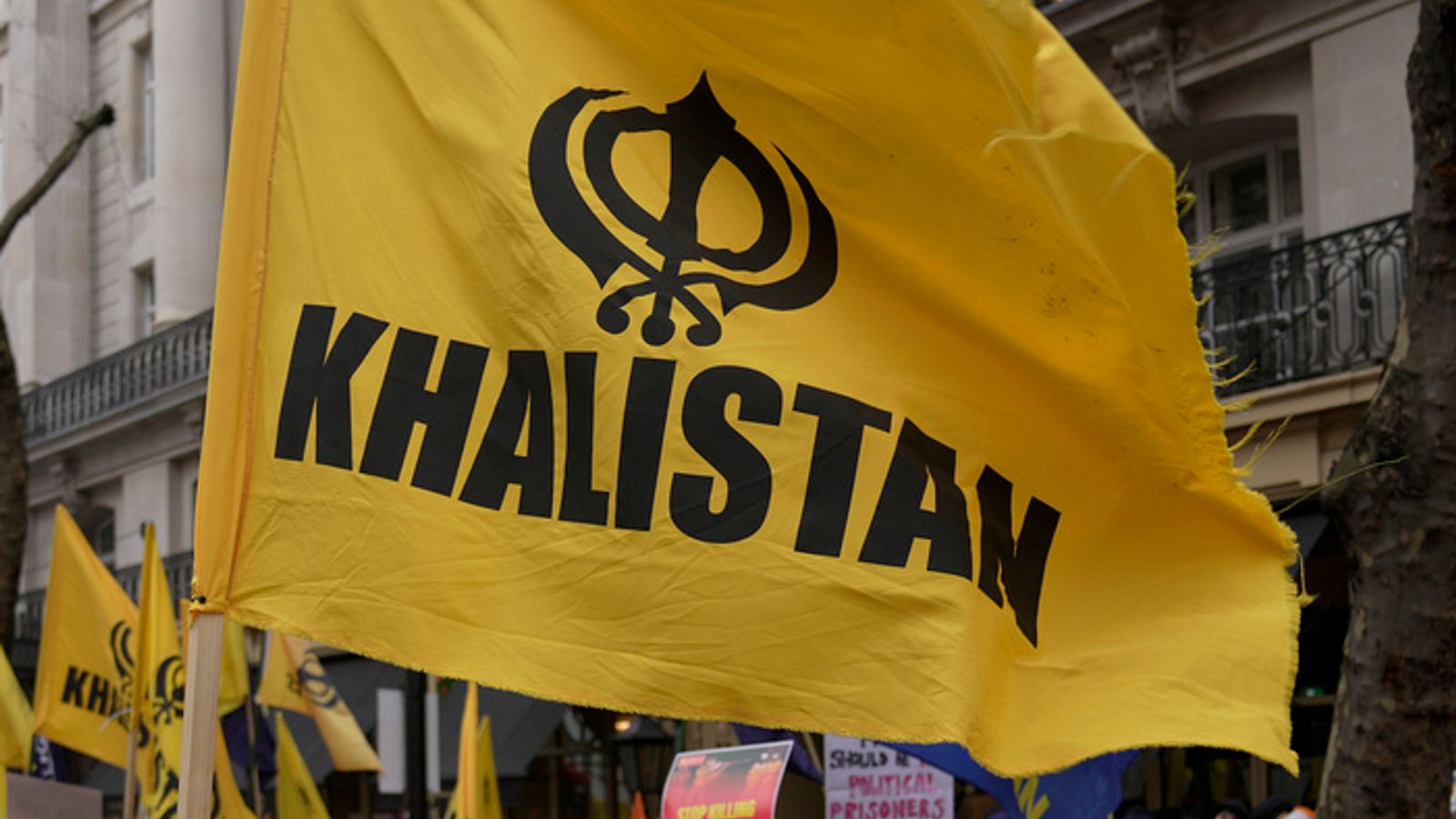India has asked Britain for increased monitoring of UK-based supporters of a Sikh separatist movement as it accuses them of abusing the asylum system to help “terrorist activities” in the South Asia country.
At a meeting in New Delhi between British and Indian officials, the Indian government said it “conveyed its concerns on the misuse of UK’s asylum status by the pro-Khalistani elements to aid and abet terrorist activities in India and requested better cooperation with the UK”.
It follows violent scenes at the Indian High Commission in London last month which saw its windows smashed and a Khalistani flag replace India’s national flag, also known as the tricolour.
Those behind the protests are believed to be Khalistani supporters, or Sikh separatists, who wish to establish a new breakaway state in Punjab, north India.
India denounced the demonstrations as a “breach of security”, while UK Foreign Secretary James Cleverly said security at the building would be reviewed following “unacceptable acts of violence” towards staff.
Meanwhile, three officials said on Monday that talks on a free trade agreement between India and Britain have not been suspended and will continue this year.
A report had claimed India “disengaged” from the discussions after the UK failed to condemn Sikh separatists.
At least 35 people killed after falling into well during celebration at Indian temple
Rahul Gandhi: Indian opposition leader hits out at Prime Minister Narendra Modi after parliament disqualification
Rahul Gandhi: Key opposition leader in India disqualified from parliament after defaming Prime Minister Narendra Modi
Lord Indarjit Singh of the Network of Sikh Organisations told Sky News how the demonstrations outside the high commission were “noisy, ill-tempered and played into the hands of those who seek to smear us [Sikhs] as anti-Indian”.
In India, protests are widespread with clashes between Khalistani supporters and police. Prominent separatist leader, Amritpal Singh, remains on the run with many of his supporters arrested.
The Khalistan movement is banned in India, where officials see it and affiliated groups as a national security threat.
Amritpal Singh claims to draw inspiration from Jarnail Singh Bhindranwale, a Sikh militant leader accused by the Indian government of leading an armed insurgency for Khalistan.
Be the first to get Breaking News
Install the Sky News app for free
Bhindranwale and his supporters were killed in 1984 when the Indian army stormed the Golden Temple, the holiest shrine in the Sikh religion.












